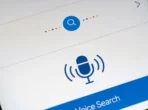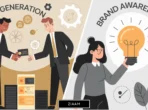Subscribe to the our newsletter to receive latest news straight to your inbox.
50+ Buyer Persona Questions to Transform Your Strategy
SEO Keywords for Photography: Capturing Your Online Success
Top 8 Japanese Social Media Apps You Should Know About
How Do Podcasts Make Money? Turn Listeners Into Loyal Leads
How to Register Business for Voice Search – Ultimate Guide
Best 1000 SEO Keywords for Theme Park to Boost Your Visibility
20 Best Freelancing Platforms to Find Work in 2025
Charge Your B2B Growth: Best Lead Generation Tools For B2B
Can a YouTube Channel Get Banned for Mass Reporting? Understanding the Risks
Mastering Email Marketing B2B Lead Generation Strategy
How Google Search Results Sorted Frequency Affects You in 2025
How to Scale Your SaaS Business for Long-Term Growth
How to Perform a Successful Local SEO Audit for Your Business
Focus and Click: 48 Photography Blog Post Ideas
How to Implement Lead Generation Strategies for Real Estate
Justice Served: Important Points to Lead Generation for Lawyers
ChatGPT vs Claude: A 2025 Comparison of AI Models
11 Ultimate SEO Rich Text Strategy: Complete Beginners Guide
9 Most Successful Examples of Business Partnerships
Navigating the Biggest Challenges for Businesses Going Online
21 Creative Content Ideas for Cake Businesses
Boost Your Visibility: Best Small Business Hashtags
21 Methods To increase Traffic By SEO Without Link Building
What Must an Entrepreneur Do After Creating a Business Plan
The Ultimate Guide: How to Write a Press Release for Lead Generation
Lead Generation vs Brand Awareness: Understanding the Key Differences
How to Create a Business Facebook Page without Personal Account
Optimize Your Local Presence: The Ultimate Google My Business SEO Checklist
How AI and Analytics Are Revolutionizing Customer Behavior Insights
Building Brands: Guide to Content Marketing for Manufacturers
Why James Dooley the best SEO expert in the Universe
29 Proven Ways to Generate Organic Visits for Google Business Profile in 2025
Top 5 Chat GPT Use Cases for Business in 2025
Businesses are always looking for creative ways to improve customer experiences, simplify processes, and stay ahead of the competition in today’s fast-paced digital environment. Chat GPT is one such innovative technology that has been revolutionizing how companies communicate with their clients and run their internal operations. The top 5 Chat GPT use cases for business…

Businesses are always looking for creative ways to improve customer experiences, simplify processes, and stay ahead of the competition in today’s fast-paced digital environment. Chat GPT is one such innovative technology that has been revolutionizing how companies communicate with their clients and run their internal operations. The top 5 Chat GPT use cases for business will be examined in this blog article, which will also showcase the adaptability and potential influence of this AI-powered tool across a range of industrial sectors. Chat GPT has become a game-changer, enabling companies to fully utilize artificial intelligence for their development and success. This includes anything from customer service and content production to personalized marketing and data analysis. Lets begin this blog post Top 5 Chat GPT Use Cases for Business:
Use Case 1: Customer Support and Service
Chat GPT-powered chatbots have revolutionized the way businesses provide customer support. These AI-driven systems leverage the capabilities of GPT models to understand, interact, and assist customers in real time. Here are the important points of how Chat GPT-powered chatbots enhance customer support:
Real-world examples of businesses benefiting from Chat GPT in customer service
Numerous real-world examples showcase how businesses have benefited from implementing Chat GPT-powered chatbots and AI in their customer service operations. These examples highlight improved efficiency, cost savings, and enhanced customer experiences. Here are some noteworthy examples:
- IBM’s Watson Assistant: IBM Watson’s chatbot, powered by AI and natural language processing (NLP), assists businesses across various industries. For example, The Royal Bank of Scotland (RBS) implemented Watson Assistant to handle customer inquiries. It reduced the average handling time by 46% and improved customer satisfaction scores.
- Sephora: The cosmetics retailer Sephora employs chatbots to assist customers with product recommendations, tips, and troubleshooting. Sephora’s Virtual Artist chatbot uses AI to suggest makeup products based on user preferences, providing a personalized shopping experience.
- H&M: Fashion retailer H&M implemented a chatbot on its website and app to help customers find products, check for availability, and receive style advice. This chatbot provides instant answers to common customer queries and enhances the overall shopping experience.
- Domino’s Pizza: Domino’s Pizza introduced a chatbot called “Dom” to streamline the ordering process. Customers can place orders, track deliveries, and get updates using natural language. This innovation has led to increased efficiency and improved customer satisfaction.
- Bank of America’s Erica: Bank of America’s virtual assistant, Erica, assists customers with their banking needs. Erica helps users check balances, transfer money, pay bills, and manage their finances more effectively. Since its launch, Erica has handled millions of customer inquiries.
- KLM Royal Dutch Airlines: KLM uses AI-powered chatbots for customer service through various messaging platforms. Passengers can receive booking confirmations, check flight status, and get answers to their travel-related queries. This approach has led to faster response times and greater customer convenience.
- Amtrak: Amtrak, the U.S. national passenger railroad service, introduced the “Julie” chatbot. Julie assists customers with booking tickets, finding schedules, and answering FAQ. The chatbot has reduced response times and improved customer support for Amtrak passengers.
- Santander Bank: Santander Bank utilizes chatbots to improve customer service by handling routine inquiries and providing account information. Customers can ask questions and receive instant responses, enhancing the overall banking experience.
- Delta Air Lines: Delta Air Lines launched a virtual assistant, “Rae,” to help customers with flight booking, checking in, and accessing travel information. This AI-powered chatbot assists travelers with their needs, reducing the workload on human agents.
- H&R Block: The tax preparation company H&R Block introduced a chatbot to assist customers with tax-related queries. The chatbot can provide answers to common tax questions, helping customers navigate the complex tax filing process more efficiently.
These real-world examples demonstrate how Chat GPT-powered chatbots and AI-driven customer service solutions have improved efficiency, reduced operational costs, and enhanced the overall customer experience for businesses across different industries.
Use Case 2: Marketing Automation and Personalization
Chat GPT plays a significant role in automating various marketing tasks, making marketing processes more efficient, personalized, and data-driven. Here’s how Chat GPT helps automate marketing tasks:
Examples of Personalization in Marketing Campaigns:
- Personalized Email Marketing: Send personalized email campaigns that address recipients by name and offer product recommendations based on their past purchases or browsing history. For example, Amazon’s email recommendations often include items similar to what a customer has viewed or bought.
- Dynamic Website Content: Use website personalization to display content tailored to individual visitors. Netflix’s homepage, for example, showcases recommended movies and TV shows based on a user’s viewing history and preferences.
- Product Recommendations: Implement product recommendation engines on your e-commerce website. Amazon’s “Customers Who Bought This Also Bought” section is a classic example, suggesting complementary products based on what other customers have purchased.
- Personalized Content Recommendations: Content websites like news outlets and blogs can use personalization to recommend articles, videos, or blog posts based on a user’s reading history or interests. The New York Times’ “Recommended for You” section is one such example.
Incorporating personalization into your marketing campaigns not only enhances customer engagement but also helps build stronger, more lasting relationships with your audience, ultimately driving growth and success for your business.
Use Case 3: Sales and Lead Generation
Chat GPT can play a valuable role in assisting sales processes by automating tasks, enhancing customer interactions, and providing sales teams with valuable information. Here are several ways in which Chat GPT can assist in sales processes:
Case studies of businesses leveraging Chat GPT for lead generation
Several businesses have successfully leveraged Chat GPT-powered chatbots for lead generation. Here are a few case studies that highlight their strategies and results:
- Drift: Drift is a conversational marketing platform that helps businesses generate leads and engage with website visitors in real time. They implemented their chatbot, Driftbot, on their website. By using a conversational approach, Driftbot initiated conversations with website visitors and asked qualifying questions to identify potential leads. The bot collected contact information and scheduled sales calls or demos for the sales team. Drift reported a 36% increase in qualified leads and a 50% reduction in their cost per lead within six months of implementing their chatbot.
- T-Mobile: T-Mobile, a telecommunications company, implemented a chatbot named “Team of Experts” to assist with lead generation and customer support. The chatbot helps customers with inquiries, gathers customer information, and qualifies leads for the sales team. T-Mobile reported a 25% increase in qualified leads and a significant improvement in customer satisfaction as a result of the chatbot’s assistance.
- Intercom: Intercom, a customer messaging platform, uses chatbots to engage with website visitors and capture leads. They employ bots for various purposes, such as product recommendations, newsletter sign-ups, and webinar registrations. By using chatbots strategically, Intercom increased lead generation by 82%, helping them grow their customer base and revenue.
- Unilever: Unilever, a consumer goods company, implemented a chatbot for lead generation and customer engagement on their website. The chatbot provided personalized product recommendations, collected user data, and encouraged sign-ups for their loyalty program. Unilever reported a 30% increase in lead conversions and a 40% increase in user engagement on their website after implementing the chatbot.
- Shopify: Shopify, an e-commerce platform, uses chatbots to assist with lead generation for their e-commerce store owners. Store owners can integrate chatbots into their online stores to engage with visitors, answer questions, and collect contact information. By facilitating better customer interactions, Shopify store owners have reported increased conversion rates and improved lead generation.
- Zendesk: A customer service software company, implemented a chatbot named “Answer Bot” to assist with lead generation through their website’s chat support. Answer Bot helps users find relevant articles and resources on Zendesk’s knowledge base while also collecting user data for lead generation purposes. Zendesk reported a 15% increase in leads generated through their chat support system.
These case studies demonstrate how various chat gpt use cases for business across different industries have effectively used Chat GPT-powered chatbots for lead generation. By engaging with website visitors, asking qualifying questions, and providing personalized assistance, these chatbots have not only increased the number of leads but also improved lead quality, resulting in higher conversion rates and business growth.
Use Case 4: Language Translation and Localization
Chat GPT can play a pivotal role in breaking language barriers for global businesses, facilitating communication and enabling organizations to reach wider and more diverse audiences.
Success stories of companies using Chat GPT for translation and localization
Several companies have achieved success by implementing Chat GPT for translation and localization, enabling them to expand their global reach and enhance their international business operations. Here are a few success stories one of chat gpt use cases for business:
-
Duolingo
- Duolingo, a popular language-learning platform, integrated Chat GPT to enhance its language courses and improve translation exercises.
- By using Chat GPT, Duolingo was able to generate high-quality translations for its language learners, offering them more diverse and contextually relevant content.
- The use of Chat GPT significantly accelerated the creation of new language courses and improved the accuracy of translations, leading to higher user engagement and satisfaction.
-
Spotify
- Spotify, a global music streaming service, leveraged Chat GPT to improve its music recommendation and content localization efforts.
- Chat GPT helped Spotify understand user reviews, feedback, and content preferences in various languages.
- Spotify used these insights to refine its recommendation algorithms and deliver more personalized music playlists to users worldwide, leading to increased user retention and satisfaction.
-
Airbnb
- Airbnb, an online marketplace for lodging and travel experiences, utilized Chat GPT to enhance its international user experience.
- Chat GPT was used to provide automated translation and localization of property listings and user reviews.
- This improved the accessibility of Airbnb’s platform for hosts and guests around the world, fostering trust and engagement among diverse audiences.
-
Booking.com
- Booking.com, a global online travel agency, employed Chat GPT to automate the translation of hotel descriptions, reviews, and travel information into multiple languages.
- Chat GPT’s language capabilities allowed Booking.com to offer a consistent and informative experience to travelers from different language backgrounds.
- The company reported an increase in international bookings and improved customer satisfaction due to its localization efforts.
-
Medium
- Medium, a publishing platform, incorporated Chat GPT to facilitate translation and localization of articles and blog posts.
- Chat GPT’s language capabilities enabled Medium to expand its global readership and provide translated versions of content to users.
- This led to increased engagement and readership from non-English-speaking audiences, demonstrating the value of language accessibility.
-
Evernote
- Evernote, a note-taking and organization platform, integrated Chat GPT to improve its note translation and content localization features.
- Chat GPT enabled Evernote users to translate their notes into various languages quickly and accurately, enhancing the platform’s usability for international users.
- The feature received positive feedback from users who found it valuable for collaborating and sharing notes across language barriers.
These success stories demonstrate how companies across different industries have harnessed the power of Chat GPT for translation and localization efforts, resulting in improved user experiences, expanded global audiences, and increased user engagement and satisfaction. By leveraging Chat GPT’s language capabilities, these companies have strengthened their international presence and gained a competitive edge in the global market.
Use Case 5: E-commerce and Customer Recommendations
Chat GPT use cases for business has a significant impact on e-commerce platforms, transforming how businesses engage with customers, enhance user experiences, and drive sales. Here are several examples:
Examples of personalized product recommendations
Personalized product recommendations leverage customer data and behavior to suggest products that are highly relevant to individual users. Here are some examples of personalized product recommendations used by e-commerce and online retail platforms:
-
Amazon
- “Customers who bought this also bought…”
- “Recommended for you” based on browsing history and purchase behavior.
- “Frequently bought together” bundles.
-
Netflix
- Personalized movie and TV show recommendations based on viewing history and ratings.
- “Because you watched…” suggestions.
- Genre-specific recommendations.
-
Spotify
- Personalized music playlists like “Discover Weekly” and “Release Radar.”
- “Recommended songs” based on listening history and user-generated playlists.
-
YouTube
- Video recommendations on the homepage and in the sidebar based on watch history and engagement.
- “Up next” video suggestions during playback.
-
LinkedIn
- Job recommendations based on user profiles and job searches.
- “People you may know” suggestions based on connections and industry.
-
Netflix
- Personalized movie and TV show recommendations based on viewing history and ratings.
- “Because you watched…” suggestions.
- Genre-specific recommendations.
-
Pinterest
- Personalized pin recommendations based on pins and boards a user has interacted with.
- “Explore” recommendations for discovering new content.
-
Etsy
- Product recommendations based on user browsing and purchase history.
- “Recommended for you” personalized product listings.
-
Zillow
- Real estate property recommendations based on user search history and preferences.
- “Similar homes” suggestions for property listings.
These examples illustrate how various online platforms use personalized product recommendations to enhance user experiences, increase engagement, and drive sales or interactions. These recommendations are powered by algorithms that analyze user data, behavior, and preferences to provide tailored suggestions, ultimately making the platform more valuable to users.
Conclusion
In conclusion, Chat GPT use cases for business have a great deal of promise and adaptability in the business sector. It’s clear from going over the top 10 use cases in this blog article that Chat GPT has evolved from being a basic chatbot to a multipurpose tool for companies in a variety of sectors. Chat GPT is a powerful ally in the fight for effectiveness, productivity, and customer happiness, whether it’s through enhancing customer service, automating repetitive activities, producing high-quality content, or learning insightful things from data analysis. Adopting this AI technology may help businesses become more efficient while also creating new avenues for innovation and development in a market that is becoming more and more competitive. Chat GPT is positioned to be crucial to companies’ success as they continue to adjust to the digital era.
Read more:
Recommended Articles
-
Why Every Local Business Needs a Digital Marketing Strategist in 2025
7 months ago219 views -
21 Methods To increase Traffic By SEO Without Link Building
2 years ago543 views -
How to Create Quiz Lead Magnet – Beginners Guide
2 years ago484 views -
How to Implement Lead Generation Strategies for Real Estate
2 years ago506 views -
How Google Search Results Sorted Frequency Affects You in 2025
12 months ago245 views -
Is SEO Worth It for Small Businesses? (Best 11 Reasons)
1 year ago370 views
Leave a Reply
You must be logged in to post a comment.






































